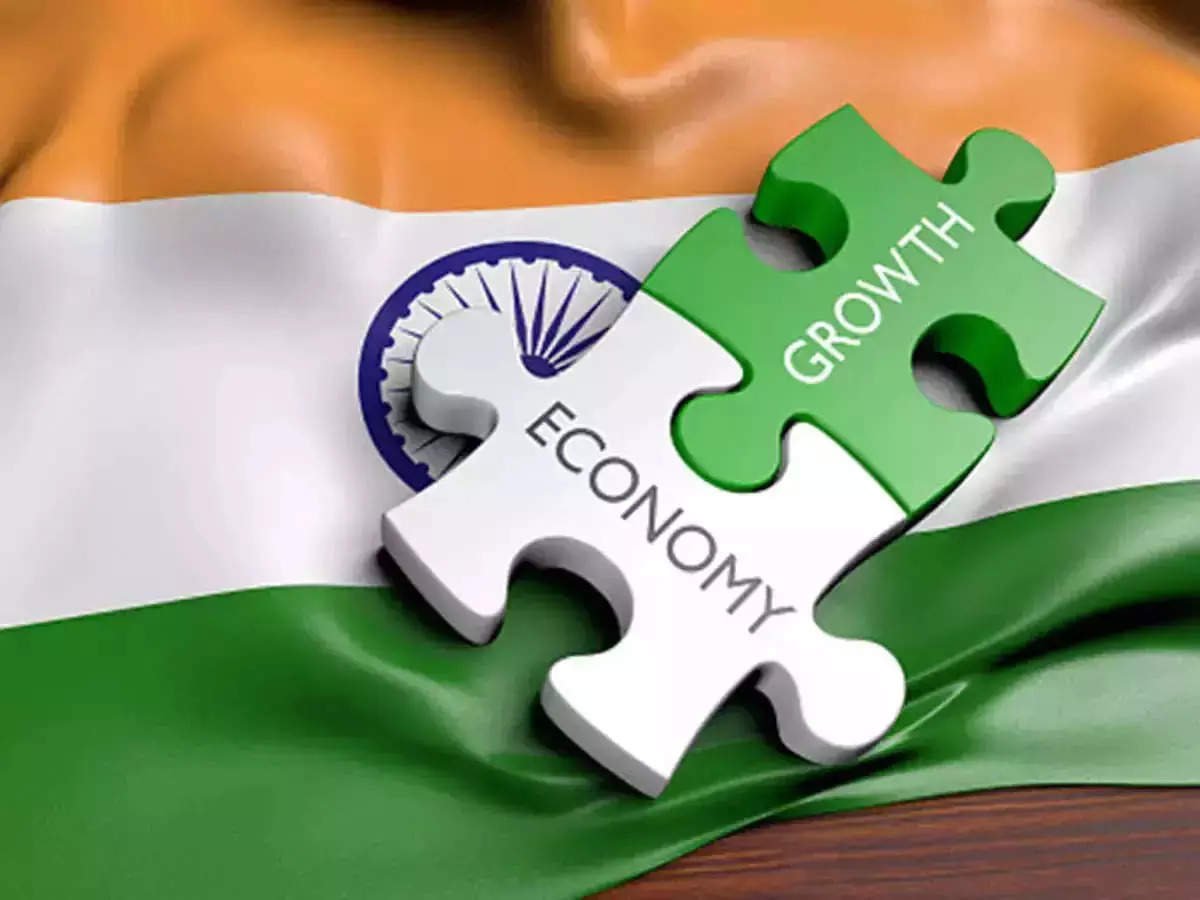In New Delhi: Notwithstanding global challenges, the Indian economy is predicted to expand by 7% in FY23, and retail inflation would reduce in line with wholesale inflation, which dropped to a 25-month low in January, the Finance Ministry stated on Monday.
India’s current account deficit is expected to decrease in FY23 and FY24, protecting the rupee in tumultuous times, according to the Monthly Economic Review published by the ministry. This is due to the benefits from high services exports, the moderation in oil prices, and the recent decline in demand for import-intensive goods.
This would ensure that India’s foreign finances are not a significant source of concern at a time when the Fed is anticipated to raise rates further, the report added. It will also give India’s external sector the much-needed cushion it needs.
As India increases its market share in both IT and non-IT services, whose demand has been stimulated by the pandemic, the increase in net service exports over the previous year is a critical development, it was stated. It was also noted that imports are now less expensive due to the drop in global commodity prices.
According to the statement, the Indian economy “has shown a new-found resilience in sailing over the turbulence generated by the pandemic and geopolitical stress,” with a manageable current account deficit and the largest growth rate among the major economies in FY23.
Although the current account deficit is expected to decrease from the year-beginning forecasts, it was emphasised that macroeconomic stability is likely to have an additional boost in FY23.
Real GDP estimates for Q3 of 2022–23, according to the research, “reaffirm the potential of the Indian economy to develop on the strength of its domestic demand even while a rise in global uncertainty slows global output,” in terms of growth.
In the third quarter, which concluded in December 2022, the Indian economy expanded by 4.4%.
According to the performance of high-frequency indicators for January/February 2023, the growth momentum established in Q3 of 2022–23 is anticipated to be maintained in Q4.
GST collections have now exceeded the milestone of 1.4 lakh crore for a continuous twelve months as of February 2023.
The report noted that inflationary pressures reduced in February, with a small reduction in CPI inflation and WPI inflation dropping to a 25-month low, thanks in part to declining international commodity prices and government initiatives.
“It is anticipated that WPI inflation will shortly translate to CPI inflation after falling to a 25-month low. According to the January 2023 round of the RBI’s Households’ Inflation Expectations Survey, household inflation expectations remained stable “It read.
According to the report, future weather extremes like heatwaves and the potential for an El Nino year, volatility in global commodity prices, and the pass-through of input costs to output prices will likely decide the inflation trajectory.
According to numerous foreign forecasting organisations, India’s inflation will likely moderate in FY24 compared to FY23 and remain in the range of 5 to 6 percent, with risks being evenly distributed, it added.
Although corporates are already highly leveraged, tightening financial conditions by central banks to control inflation has sparked worries about the escalation of corporate debt vulnerabilities, it said.
The issue appears to be limited, according to the research, in the instance of India. Since mid-2021, the debt in India’s private non-financial sector has steadily decreased, and the quality of the debt has improved.
According to the report, India’s corporate sector credit-to-GDP ratio is also below its historical trend, indicating that there is enough room for the corporate sector to borrow more. It also stated that the corporate sector’s strong debt profile will be crucial in preserving the macroeconomic stability of the economy in the future.





